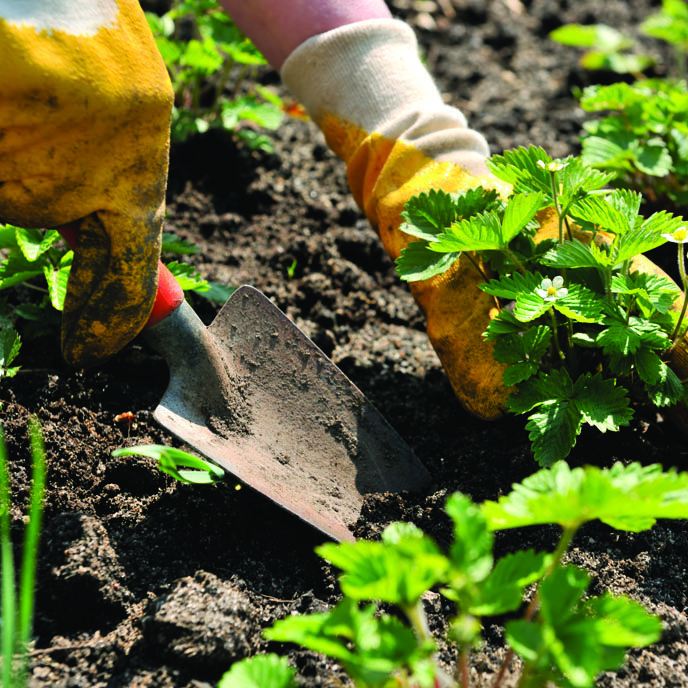Unlocking the Advantages of Gardening: A Detailed Check Out the Different Types and Their Impact on Wellness
Exploring the complex benefits of horticulture reveals a range of practices that considerably boost individual well-being. From veggie and herb gardens to container and elevated bed setups, each type uses distinctive advantages that prolong beyond mere growing. These activities not just foster physical health through energetic engagement yet additionally add to mental wellness by alleviating tension and encouraging mindfulness. As we examine these varied gardening approaches, it becomes noticeable that their effect can reverberate on personal, social, and environmental degrees, triggering a closer consider exactly how these connections create a cohesive story of all natural health.
Types of Horticulture

Blossom gardening, another preferred group, highlights the aesthetic allure of cultivated blooms. This kind can improve landscapes and promote biodiversity by drawing in helpful pollinators. Herb horticulture includes growing fragrant and culinary plants, adding both to cooking and all-natural treatments.
Container gardening deals adaptability, allowing people with restricted space to involve in horticulture by utilizing pots and planters. This approach is especially popular in metropolitan setups. Increased bed gardening, on the other hand, involves developing elevated stories that improve soil drainage and availability, making it simpler for garden enthusiasts to manage their plants.
Lastly, area gardening promotes cooperation among people in common spaces, advertising social communication and cumulative obligation. Each sort of gardening serves distinctive purposes and caters to various preferences, making gardening a flexible task that can be tailored to individual requirements and settings.
Mental Health Advantages
Participating in different sorts of horticulture not only generates substantial incentives such as fresh produce and attractive flowers yet also uses substantial psychological health benefits. Research study suggests that horticulture can be a powerful device for lowering stress, stress and anxiety, and anxiety. The act of often tending to plants and growing a yard cultivates a sense of function and success, which can enhance overall emotional well-being.
Furthermore, gardening encourages mindfulness, as it needs people to concentrate on today minute, whether it be growing seeds or supporting development. This mindfulness practice can lead to reduced rumination and enhanced state of mind security. The direct exposure to native environments during horticulture has likewise been linked to enhanced cognitive functioning and decreased sensations of exhaustion.
Social communication plays a vital duty in psychological health and wellness, and neighborhood gardening initiatives give possibilities for people to attach with others, cultivating a feeling of belonging. The shared experience of gardening can grow relationships and support networks, further bolstering emotional resilience.
Physical Health And Wellness Conveniences
Numerous people may not recognize that horticulture also gives considerable physical wellness benefits. Participating in horticulture tasks requires a series of physical motions, including flexing, training, digging, and planting, which jointly add to improved stamina, adaptability, and endurance. These activities can enhance cardio wellness by promoting an elevated heart price, therefore decreasing the threat of heart condition.
Furthermore, horticulture can function as a moderate-intensity exercise, assisting people achieve recommended exercise degrees. Research studies indicate that regular involvement in horticulture can shed substantial calories-- approximately 200-400 calories per hour, depending on the intensity of the tasks carried out. Such calorie expenditure is valuable for weight management and overall metabolic health and wellness.
Furthermore, direct exposure to sunshine throughout gardening can help with the synthesis of vitamin D, which plays an important function in keeping bone wellness and sustaining immune feature. Furthermore, the act of horticulture frequently involves working with soil, which has actually been linked to possible mental and physical health benefits due to the visibility of beneficial microorganisms. Gardening.
Social Connections Via Gardening
The common elements of gardening foster purposeful social links among individuals. Area yards, in specific, function as vivid centers where individuals from varied histories collaborated, cultivating not just plants however also relationships. These common spaces urge cooperation, enabling individuals to trade understanding, abilities, and sources, thereby enhancing their gardening experience and cultivating a sense of belonging.
Involvement in gardening tasks usually causes the formation of relationships and support networks. Individuals often join for typical goals, such as planting periods, harvest events, or educational workshops, which enhance interpersonal ties and produce a feeling of neighborhood. Such communications can minimize feelings of isolation and boost mental wellness, as individuals locate companionship and great site friendship in common ventures.

Ecological Effect of Horticulture
Gardening considerably adds to ecological sustainability in multiple means. Among the most remarkable advantages is the enhancement of biodiversity. Home yards supply important environments for numerous species, consisting of pollinators such as bees and butterflies, which are important for ecosystem wellness. By growing varied plant varieties, garden enthusiasts can create a balanced atmosphere that sustains both plants and fauna.

In addition, yards play an essential role in water preservation. Tactical landscapes, including native plants and xeriscaping, reduce water usage and avoid overflow, thereby shielding regional waterways from air pollution.
Final Thought

To conclude, gardening works as a complex activity that boosts well-being across numerous domains. The varied kinds of gardening-- consisting of vegetable, flower, herb, container, and elevated bed-- contribute to psychological and physical health, foster social connections, and advertise environmental sustainability. By involving in horticulture methods, this page people can experience enhanced lifestyle while likewise sustaining community bonds and eco-friendly health. Eventually, click here for more the all natural benefits of gardening emphasize its importance as a vital aspect in enhancing total well-being.